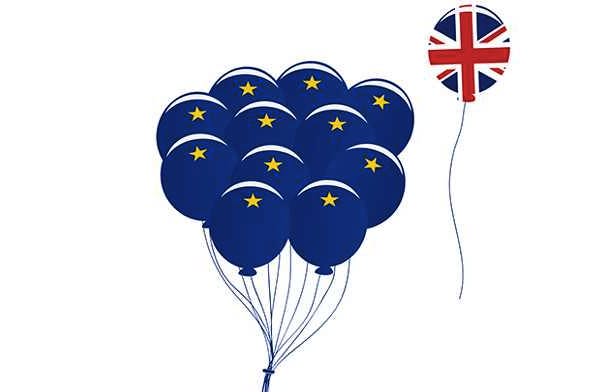Happy Brexit Day everyone. I guess we’ll be okay in the long term. March 29th is the bloodiest day in English history, a day on which a London-dominated clique funded by the City defeated an army raised from the north and Midlands; history has since come to know it as the War of the Roses although it barely affected people who weren’t directly involved. (Historian John Gillingham even states that direct taxes went down and housebuilding continued, which is more than can be said for the past few years).
On that date in 1461, in a snowstorm in Towton, north Yorkshire, the young usurper Edward IV – only 18 years old – beat Lancastrian forces loyal to the insane Henry VI and his French wife Margaret of Anjou. At the end of the day as many as 28,000 men were dead, which would make it four times as bloody as Hastings, although the number is highly disputed and people tend to exaggerate numbers, then as now.
Towton was, in many ways, a fight between north and south. A few months earlier Queen Margaret had led an army towards London comprised of northerners and – even worse – Scots, something that caused terror in the capital. Abbot Whethamstede of Hertfordshire criticised ‘Northern people, faithless people, people prompt to rob’. The Prior of Croyland in Lincolnshire described ‘an execrable and abominable army’ coming down from the north ‘like so many locusts’.
Edward’s cousin the Earl of Warwick had raised money in London and the Home Counties by asking for help against the ‘misruled and outrageous people in the north parts’ who were ‘coming toward these parts to the destruction thereof’. When, in late 1460, the royal army had headed south from Wakefield there was a genuine terror in London that the northerners would sack the city. Songs of the period recall the threats of northern men violating southern women and of ‘the lords of the North’ coming to ‘destroy the south country’.
So that the Yorkists won was down to the support of the city, which was vastly richer than anywhere else in England, largely due to trade with the continent. In the nine months before Towton the city provided £13,000 for the Yorkist cause, enough to pay 26,000 archers for 20 days’ service.
I love a tenuous historical comparison but that’s where it probably ends, although every time public figures respond to Islamic extremism by saying how united we are it does rather remind me of poor Henry VI’s attempts to get the country together by arranging a ‘Loveday’ in London – because nothing says a society is united quite like an organised day to celebrate how united it is.
The only comparison I’d make is that things turned out okay in the end, eventually, as I suppose Brexit will. We probably shouldn’t have joined the EU and shouldn’t have left, and Britain was always destined to be part of some sort of outer region while core countries around Germany went in for full union. I suspect this deeper union will end in tears but that’s their business.
Edward IV turned out to be a highly effective king, helping the interests of the City of London on whom he relied. He liked to take merchant leaders on hunting trips, the ancestor of today’s away days, where afterwards they would get hopelessly drunk and indulge in all sorts of unmentionable debauchery involving ‘wenches’. His reign saw the first printing presses in England, brought from the continent by William Caxton – who had started in his new career in his fifties – and who was patronised by Edward’s sister Margaret of York. Margaret was married to the Duke of Burgundy, and just as now the City’s wealth, and therefore England’s, was dependent on trade with its European neighbours – which also brought with it political and cultural development.
England was something of a cultural backwater in the 15th century, although economically it was already on its way up; the first real country houses date from this century, for example, and diet had improved considerably since the previous century. But it was still behind the Netherlands, which at this stage was speeding ahead of the rest of Europe; that it was the English who became a world power rather than the Dutch was largely down to geography, and the good fortune of having a moat around us; this de-militarised English society in a way that was unknown on the continent. This gave Britain a huge advantage, but it also helps to explain why we’ve always been a bit different, annoyingly different. (There’s a particular feeling when driving alone on the continent and paying a toll, having to get out of the car to walk around to take a ticket, and you know the people behind are just thinking ‘why do they have to be so different?’, while I’m muttering ‘sorry, sorry’ like Eric Idle in European Vacation.)
It could be argued that this English awkwardness has been a good thing for Europe, too, since the country was to play a vital role as a haven for liberalism in the 18th century. As this essay argues, the key to Europe’s historical success has been cultural unity and political fragmentation.
In brief, Europe’s political fragmentation spurred productive competition. It meant that European rulers found themselves competing for the best and most productive intellectuals and artisans. The economic historian Eric L Jones called this ‘the States system’. The costs of European political division into multiple competing states were substantial: they included almost incessant warfare, protectionism, and other coordination failures. Many scholars now believe, however, that in the long run the benefits of competing states might have been larger than the costs. In particular, the existence of multiple competing states encouraged scientific and technological innovation.
Of course, it’s easy for those with memories of 1914-45 to see political fragmentation as the problem, but even today political diversity is likely to be a good thing for Europe – so long as we maintain cultural unity, which is why it’s important that we continue to play a large part in pan-European projects in education and science. Hopefully that won’t be a problem, but until the dust settles perhaps it’s not quite time to open that bottle of English sparkling wine in celebration.







Comments